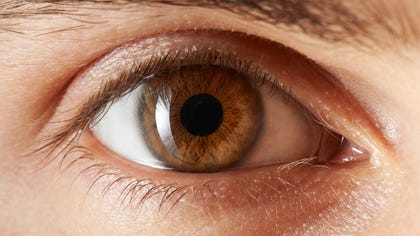Also, see what color sunglasses you should use, what habits might damage your vision and six common eye conditions you might face as you age.
The best vitamins and supplements for eye health
Regularly eating the best foods for healthy eyes is a great way to nourish them. Sounds easy, right? The reality is that it can be difficult to ensure your diet consistently has the essential vitamins and nutrients they need. That’s where supplements come in.
You can use vitamins and supplements to help you cover any holes in your diet while working to strengthen your vision and stave off eye diseases. Below are some of the best vitamins and supplements for eye health. But of course, always consult a doctor before making any changes to your health routine to find what will work best for you.
In addition to a balanced diet, here are the best vitamins and supplements for your eyes. Luckily, you can get most of these added supplements for less than $10.
Vitamin A
Vitamin A supports your vision, immune system, heart, lungs and overall growth and development. Specifically, vitamin A helps you see a full spectrum of light, as the vitamin produces pigments in the retina. It can also keep your eyes from drying out. You can find vitamin A in foods such as salmon, broccoli, fortified breakfast cereals, eggs and carrots.
You have probably heard of the magic of carrots. Yes, it’s true: Carrots are great for your eyes. Carrots (and other vividly colored fruits and vegetables) are high in beta-carotene, which is a compound that your body uses to make vitamin A. Beta-carotene is also available in a supplement form, although it isn’t as common as vitamin A and is often more expensive.
Foods with vitamin A
– Salmon
– Broccoli
– Fortified breakfast cereals
– Eggs
– Carrots
Vitamin C
Vitamin C is like sunscreen for your eyes: It helps protect them from UV damage. The more time you spend outside and under the sun, the greater the risk for damage. According to the American Academy of Ophthalmology, too long in the sun can cause irreversible damage. Vitamin C can also lower your risk of cataracts, a disease that causes the lens of your eyes to become cloudy.
While a recent study found that vitamin C supplementation was effective in patients who were already vitamin C deficient, more studies are needed to truly understand the relationship between vitamin C and a lower risk of cataracts. In addition to getting enough vitamin C, avoid tanning beds, and if you are outside, wear sunglasses and a hat to protect your eyes.
Foods with vitamin C
– Kale
– Broccoli
– Brussels sprouts
– Oranges
– Lemons
– Strawberries
Omega-3s
Optometrists regularly recommend their patients consume omega-3s, and if a patient isn’t getting enough of these fatty acids in their diet, try a supplement. Omega-3s are mainly found in fatty fish such as tuna, salmon, mackerel or herring and some nuts and seeds.
The American Optometric Association points to omega-3s as a nutrient that can slow the progress of age-related macular degeneration. Studies have also found that they can help prevent dry eye disease. These nutrients are great for both conditions due to their anti-inflammatory effects
Foods with omega-3s
– Tuna
– Salmon
– Mackerel
– Herring
– Chia seeds
– Flaxseed
– Walnuts
Vitamin E
Another powerful antioxidant, vitamin E is vital to all our cells and cell functions. It helps to protect our bodies from cancer-causing free radicals and plays an important role in vision. Studies have shown that vitamin E can help protect the retinas from free radicals that can cause eye disease.
Vitamin C, another antioxidant, has more properties that help regeneration. Vitamin E can only help to protect the cells already there. But vitamin E can slow the progression of age-related macular degeneration. The American Optometric Association recommends 400 IU of vitamin E a day.
Foods with vitamin E
– Sunflower seeds
– Almonds
– Peanuts
– Collared greens
– Red bell peppers
– Mangoes
– Avocados.

